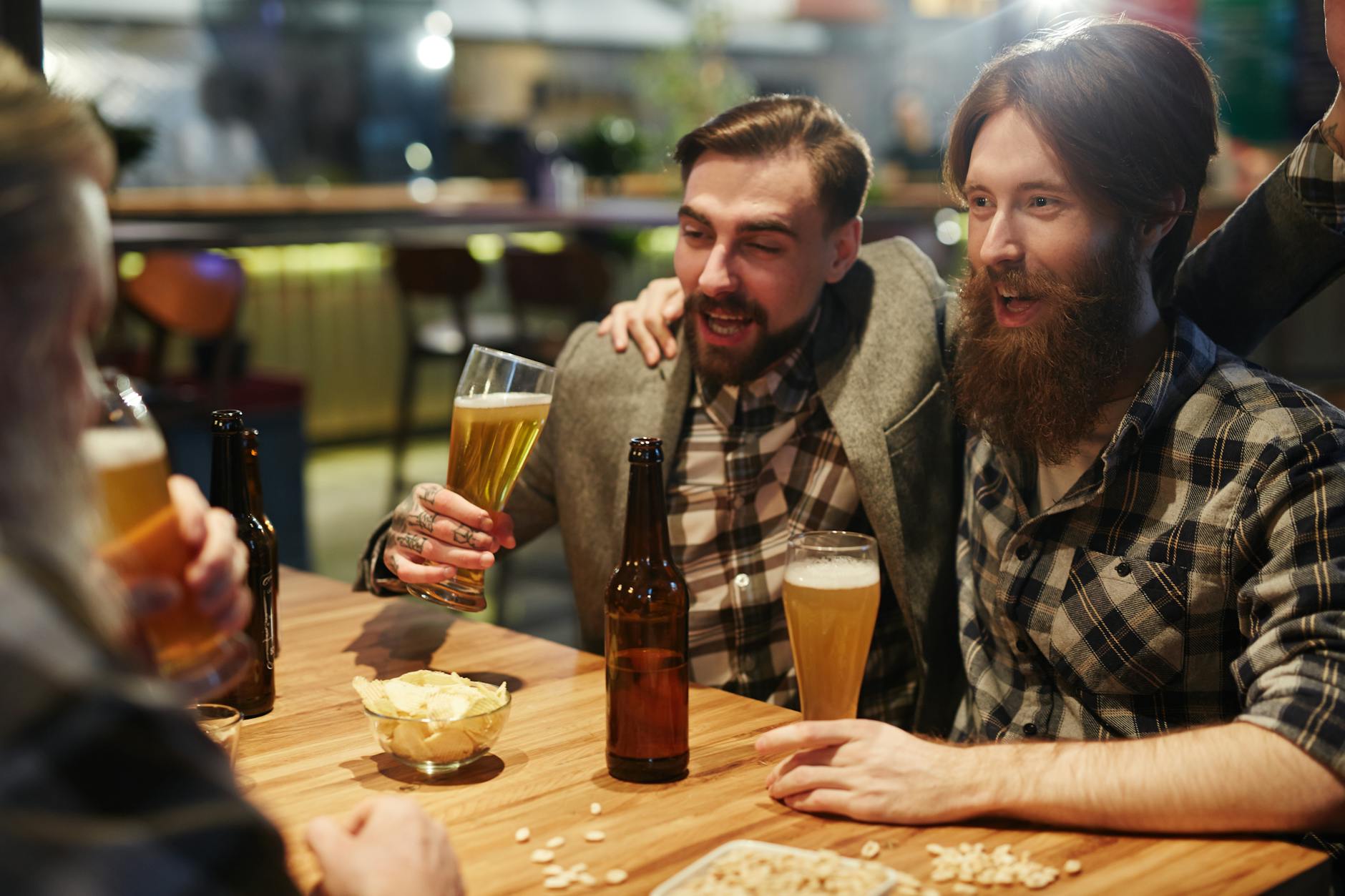Unlock the mystery of how many beers it takes to reach your limit and avoid going over the edge!

Image courtesy of Pressmaster via Pexels
Table of Contents
Settle into a cozy spot and join us as we delve into the intriguing question that has likely crossed the minds of many: How many beers does it take to get drunk? It’s a question that often sparks curiosity and contemplation, leading us to explore the intricate science behind alcohol metabolism, individual tolerance levels, and the various factors that can influence intoxication levels.
It’s a question that has lingered in the minds of many, especially when faced with the prospect of enjoying a few drinks with friends or unwinding after a long day. Understanding how many beers it takes to get drunk is not only a matter of curiosity but also a crucial factor in promoting responsible drinking habits.
The Science Behind Alcohol Metabolism
Alcohol metabolism is a complex process that occurs primarily in the liver. When we consume alcohol, enzymes in the liver break it down into acetaldehyde and then further metabolize it into harmless substances. However, the speed at which alcohol is metabolized can vary widely among individuals based on factors such as age, gender, weight, and overall health.
Blood Alcohol Content (BAC) is a key indicator of intoxication levels, with higher BAC levels corresponding to increased impairment. Understanding how alcohol is metabolized in the body can provide insight into why some individuals may feel the effects of alcohol more quickly than others.
Individual Tolerance Levels
Tolerance to alcohol refers to an individual’s ability to withstand the effects of alcohol over time. While some individuals may have a higher tolerance due to genetic factors or regular alcohol consumption, others may experience intoxication more quickly with smaller amounts of alcohol.
It’s important to recognize the signs of intoxication and know your own limits when it comes to alcohol consumption. By understanding your tolerance level, you can make informed decisions about how much to drink and when to stop to avoid reaching dangerous levels of intoxication.
Factors Influencing Intoxication
Several external factors can influence how quickly you feel drunk after consuming alcohol. Eating a meal before drinking, staying hydrated, and avoiding mixing alcohol with other substances can all play a role in moderating intoxication levels.
Additionally, the type of alcohol consumed can impact how quickly you feel the effects. Beverages with higher alcohol content, such as spirits, may lead to faster intoxication compared to lower-alcohol options like beer or wine.
When it comes to drinking responsibly, it’s essential to be mindful of these factors and make informed choices to ensure your safety and well-being.
As you navigate the world of alcohol consumption, remember that understanding your body’s limits and respecting your tolerance level is key to enjoying drinks in a responsible and safe manner. By delving into the science behind alcohol metabolism, individual tolerance levels, and the various factors that influence intoxication, you can arm yourself with knowledge to make informed decisions about how many beers it takes to get drunk.
So, the next time you find yourself contemplating another round of drinks, remember to listen to your body, know your limits, and prioritize your well-being above all else.
FAQ
How can I determine my alcohol tolerance level?
Answer 1: Understanding your alcohol tolerance level involves monitoring how you feel after consuming alcohol, recognizing signs of intoxication, and knowing when to stop to avoid reaching dangerous BAC levels.
Is there a universal number of beers that will make everyone drunk?
Answer 2: No, the number of beers it takes to get drunk varies significantly among individuals due to factors such as weight, metabolism, and tolerance levels.
How can I pace myself while drinking beers to avoid getting drunk too quickly?
Answer 3: Pace yourself by alternating alcoholic drinks with water, setting a limit on the number of beers you’ll consume, and eating a meal before drinking to slow down alcohol absorption.
Can mixing different types of alcohol affect intoxication levels?
Answer 4: Yes, mixing different types of alcohol can increase intoxication levels due to the varied alcohol content and speed of absorption. Stick to one type of alcohol and drink responsibly to avoid unwanted effects.
Generated by Texta.ai Blog Automation
Leave a Reply